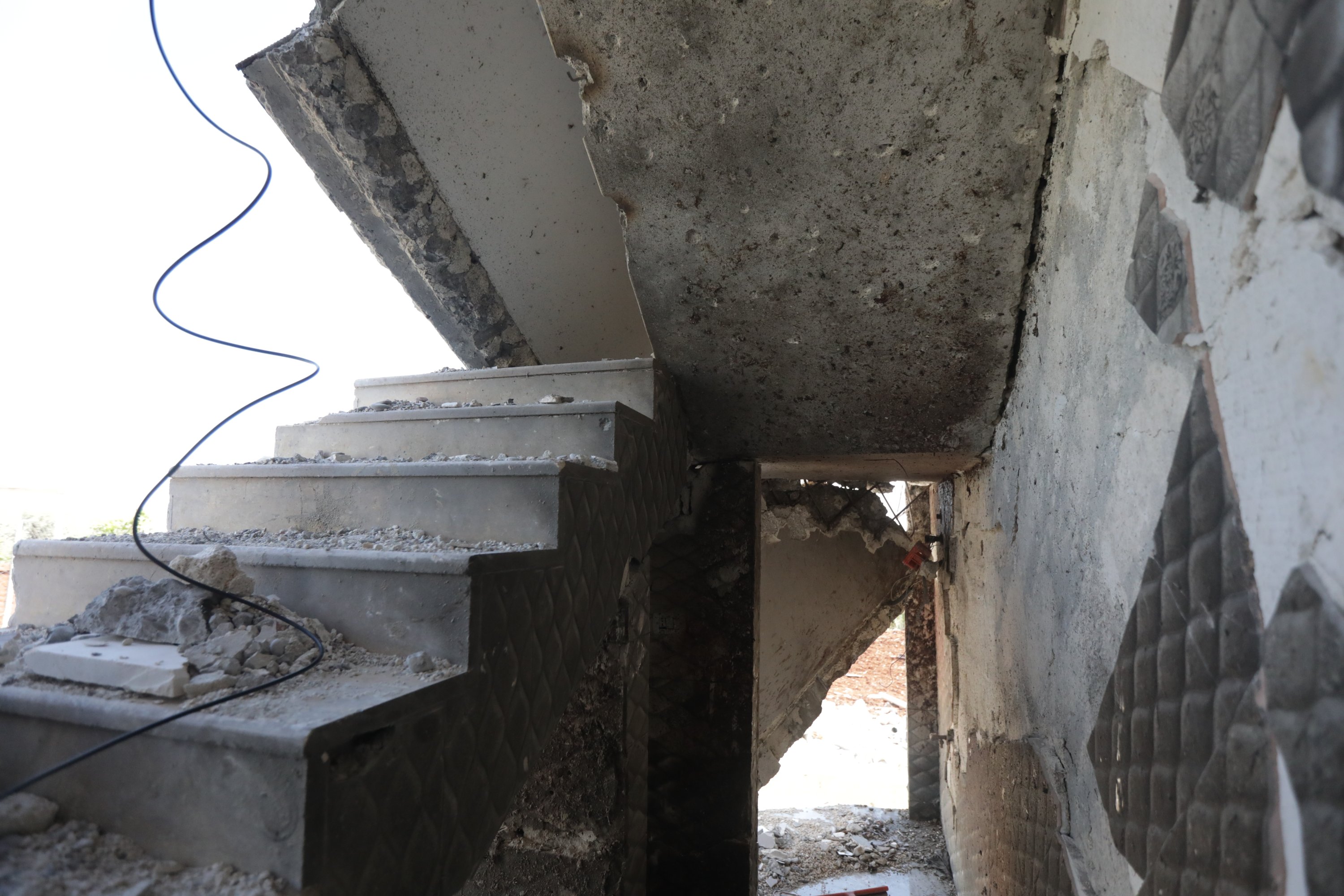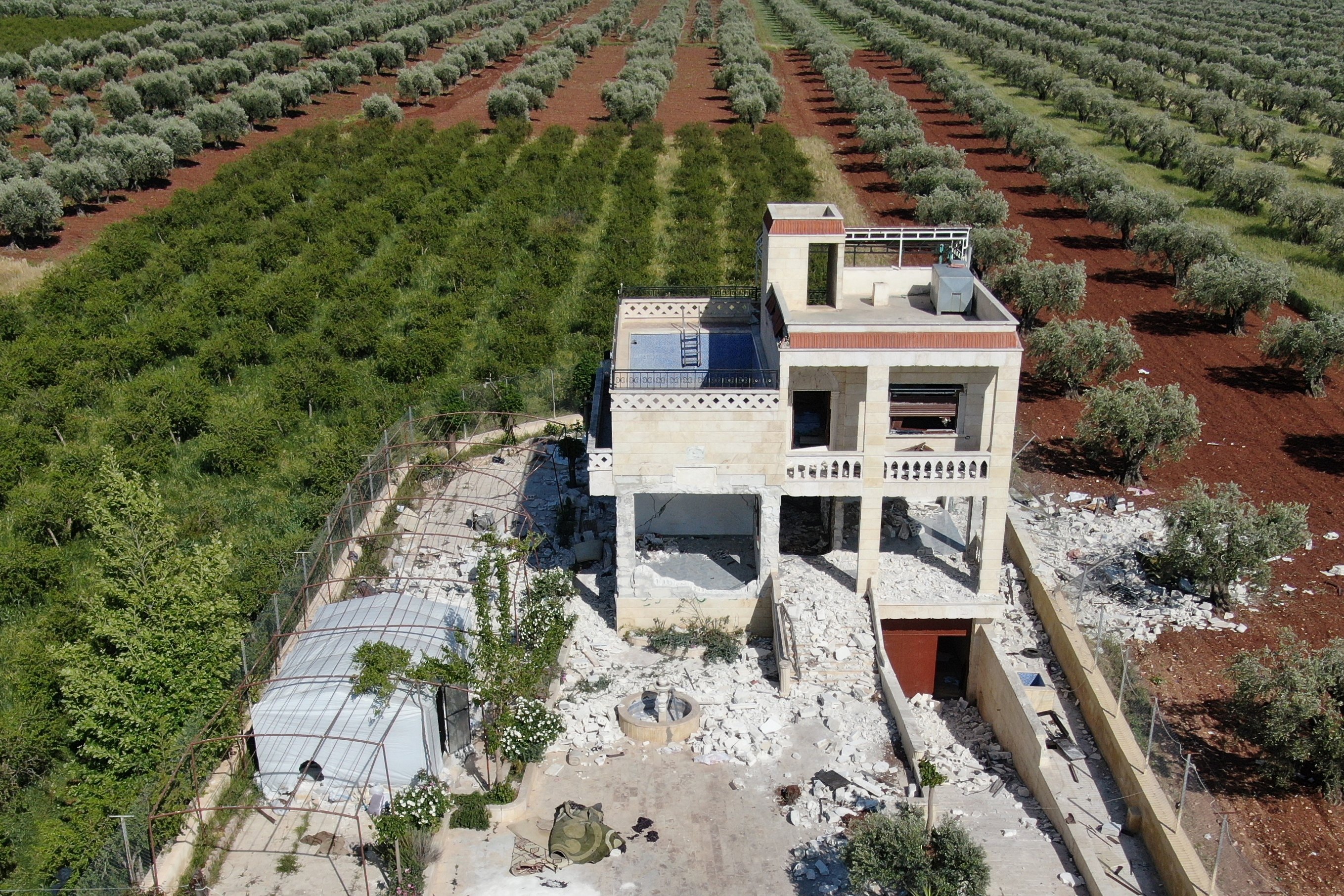© Turkuvaz Haberleşme ve Yayıncılık 2026
Abu Hussein al-Qurashi, who recently took over the leadership of Daesh, was “neutralized” in an operation conducted by Türkiye’s National Intelligence Organization (MIT) in Syria, President Recep Tayyip Erdoğan announced late Sunday.
Erdoğan said in a live televised interview that al-Qurashi had been pursued by the intelligence for a long time.
“Neutralized” is a term used by Turkish officials to describe the killing or capture of terrorists and in most cross-border operations, it means the killing. “When the United States carries out a strike against Daesh, the world is talking about it,” Erdoğan said. The president noted that MIT became an organization leading in counterterrorism efforts.
Syrian local and security sources said the raid occurred in the northern Syrian town of Jandaris, controlled by Syrian opposition forces and was one of the worst affected in the Feb. 6 earthquake that hit both Türkiye and Syria. The Syrian opposition did not immediately issue any official comment.
One resident said clashes started on the edge of Jandaris overnight from Saturday into Sunday, lasting for about an hour before residents heard a large explosion. Security forces later encircled the area to prevent anyone from approaching the area.

Anadolu Agency (AA) reported that MIT conducted an operation that lasted four hours on April 29, targeting Al-Qurashi. Al-Qurashi was about to leave the residence he was hiding in, prompting the operation. The intelligence organization's special operations team called on him to surrender, to no avail. They proceeded to knock down the house's outer walls, which also contained a secret underground bunker. When they closed on in, the Daesh leader ignited a suicide vest he was wearing, according to AA. No civilians or members of the operation team were injured in the raid.
Daesh selected al-Qurashi as its leader in November 2022 after the previous Daesh leader was killed in an operation in southern Syria. The terrorist group took over vast swathes of Iraq and Syria in 2014 under the leadership of Abu Bakr al-Baghdadi.
But it lost its grip on the territory after campaigns by U.S.-backed forces in Syria and Iraq and Syrian forces backed by Iran, Russia and various paramilitaries.
A U.S.-led coalition force still raids Daesh officials in Syria. In addition, the U.S., under the pretext of this “fight” against Daesh, supplies military equipment and training to PKK/YPG, a terrorist group holed out in northeastern Syria, despite protests by Türkiye, which both terrorist groups target.
“A great and strong Türkiye is a source of pride for its citizens, and we yearn for it by fighting against terrorist groups,” Erdoğan said. “We deterred terrorist groups. Our fight against terrorism also helps the security of Europe, but Europe is not aware of this. We are the only country carrying out a fight against PKK/YPG that gets results,” he said.
In the past, Daesh would claim victories only dreamt of by al-Qaeda, seizing vast stretches of territory that spanned the heart of the Middle East. At its height, the terrorist group controlled roughly one-third of Syria and 40% of Iraq amid widespread instability, claiming major cities, including Mosul and Raqqa, and bringing an iron-fisted rule that attracted people worldwide.
Its gruesome violence was spread worldwide, with videos of human immolation and beheadings circulating online. It later directed and inspired vicious terror attacks that killed innocents in London, Paris, Istanbul, New York City and Orlando, Florida.
The U.S.-led coalition would claim victory in erasing the terror group’s territorial holdings in 2019, the same year the U.S. killed Baghdadi, the man whose name was synonymous with the terror group’s heinous violence, slavery, and mass rape.
His death and the rollback of Daesh’s territorial holdings were major milestones in the U.S.’ global countertenor operations. Still, the terrorist group continues to plot attacks in the region and beyond, with local branches and sleeper cells operating in the Middle East, Africa, and South and Central Asia.
In 2013, Türkiye became one of the first countries to declare Daesh, a terrorist group. However, the country has since been attacked by Daesh multiple times, with over 300 people killed and hundreds more injured in at least 10 suicide bombings, seven bomb attacks, and four armed assaults.
As a result, Türkiye launched operations at home and abroad to prevent further attacks, including several counterterrorism operations in Syria.
Terrorists from Daesh and other groups, such as the PKK/YPG, rely on a network of members and supporters in Türkiye. In response, Ankara has been intensifying its crackdown on the terrorists and their links at home, conducting pinpoint operations and freezing assets to eliminate the roots of terrorist groups.
Türkiye deported 9,000 foreign terrorist fighters, mainly from Daesh, from 102 different nationalities, of which 1,168 are from the U.S. or the European Union member countries since 2011.
France, Germany, the Netherlands, Belgium, Finland, Romania, Sweden and Austria were the leading EU countries in terms of deported foreign terrorists.

The issue of handling Daesh terrorists and their families detained in Syria, including foreign members of the terror group, has been controversial, with Türkiye arguing foreign-born terrorists should be returned to their countries of origin. Ankara has said several European countries resisted its efforts to send Daesh terror group members to their countries, but it will press forward.
Since the beginning of the Syrian civil war in 2011, nearly 5,000 foreign fighters have traveled from the EU to conflict areas in Syria and Iraq, according to estimates by the European Union Agency for Law Enforcement Cooperation, better known as Europol.
Since its formal defeat in Iraq in 2017 and significant loss of territory in Syria since 2015, Daesh fighters have been leading their operations underground, besides losing their leaders to military operations. The group’s last three leaders, all Iraqis, were killed in Syria in recent years outside the areas it once purported to rule.
The last Daesh leader, Abu al-Hassan al-Hashimi al-Qurayshi, the successor of Abu Ibrahim al-Hashemi al-Qurayshi, who committed suicide during a U.S. raid earlier in 2022, was killed in mid-October last year by the Syrian opposition forces in southern Syria, as confirmed by the U.S. Central Command (CENTCOM).
Remaining Daesh militants, whose numbers reach thousands, mostly hide in remote territory across the region but still possess the ability to carry out significant insurgent-style attacks.
